Why Data Modernization Starts with Human Connection
DASH staff were at the Region 5 Public Health Infrastructure Grant (PHIG) Hub convening last month to present on DASH's role as technical assistance providers for the Data Modernization Initiative (DMI). DMI is currently a component of the CDC’s 2022 PHIG, a multi-billion dollar, five-year grant awarded to public health entities across the country to strengthen technical, relationship, and equity infrastructure.
PHIG Hub Convenings
Earlier this year, the Michigan Public Health Institute (MPHI) hosted the Region 5 Public Health PHIG Hub Convening in Chicago, IL. (Region 5 comprises Illinois, Indiana, Michigan, Minnesota, Ohio, and Wisconsin.) Attendees were mostly representatives of health jurisdictions that received the grant, as well as representatives from universities, associations, and nonprofits offering technical assistance and training to grant recipients.
The gathering was one of a series of regional PHIG Hub convenings that the National Network of Public Health Institutes (NNPHI) coordinated as the grant’s first full year comes to a close. The convenings give recipients the chance to reflect on and share their experiences, receive support and assistance, and build relationships.
DASH has been providing technical assistance to PHIG grantees for the Data Modernization Initiative portion of the grant, and two DASH staff members presented at the Region 5 convening: co-director Melissa Moorehead, who offered an overview of the DMI and the types of technical assistance DASH provides; and program manager Ellen Clewett, who took a ground-level look at DASH’s technical assistance and the value of partnerships in data modernization.
The MPHI team and key partners at the Region 5 Public Health PHIG Hub Convening
Credit: NNPHI
What Comes Before Data?
When you hear “data modernization,” what comes to mind? Most people think about technology: more powerful software and hardware, more rigorous data security, cloud-based innovations.
Certainly, technology plays a key role in agencies’ efforts to upgrade. Yet the data modernization concerns that Melissa and Ellen heard in their sessions, as well as throughout the day in other sessions and conversations, were overwhelmingly not about technology.
The same goes for other Hub convenings DASH has been invited to this past year. We have learned much about state and metro public health department goals around equity, sustainability, and effectiveness, and it’s been exciting to see where DASH’s work supporting data infrastructure for equitable data ecosystems can be leveraged for national impact. But the buzz at these convenings has not been about data, per se. It has been about connections.
We have found that, for the most part, people engaged in data modernization are wrestling with the building blocks of relationships: communication, trust, partnering, giving and receiving support, shared language and assumptions.
“The CDC says we should connect to QHINs. We are striving to follow their advice, but… what’s a QHIN?”
“We want to reach out to other agencies to collaborate, but we can’t access all of the relevant data in our own agency yet. Another team down the hall from us is in charge of some of it and they don’t seem to understand why we are asking for access to it.”
“Our city sends so much data to the state health department, but when we ask them for what we need in turn, we can’t get anything back.”
These questions echo the nature of DMI technical assistance requests we’ve been receiving here at DASH:
“We want to connect data systems and streamline data-sharing amongst the bureaus within our department. We have a lot of bureaus! How do we connect them all and decide who is responsible for what?”
“We know our surveillance system needs to be upgraded, but we need to know what others in the field are doing so that we make wise purchasing decisions. ”
“We are working on making our use of ARC-GIS more robust and efficient. As part of this, we want to partner with others in our state. How do we make sure our work is complementary and cohesive with theirs? ”
The Systems Mindset
A Region 5 PHIG Convening attendee considers what equity means in public health
Credit: NNPHI
The fact that effective engagement with data comes down to effective relationships between people is no surprise to DASH. That is the foundation on which our work stands.
After all, information systems do not exist in isolation from social, political, economic, and historical forces. Questions about what data is collected, who has access to data, or what the data is used for, cannot be reduced to what is technologically feasible and what produces a return on investment. The ultimate question of what data actually means is answered by context.
By and large, questions about data are, really, questions about relationships.
For that reason, the DASH Framework establishes that developing shared understandings of and with others is a cornerstone of equitable, meaningful data sharing. This includes building trusting partnerships across organizations in collaboration with each other. This also includes building data literacy and infrastructure capacity within organizations.
DASH’s experience with PHIG makes clear the evergreen nature of our mandate from our first granting rounds, way back in 2016: to support and encourage connection across partners in multisector collaborations as an essential part of sharing data for health.



